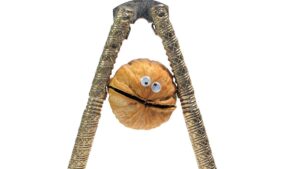Pharmaxis dealt another blow as partner backs out of second drug development

Pharmaxis (ASX:PXS) and Biotron (ASX:BIT) have gone in polar opposite directions in 2020 and today the gap widened further.
Biotron has now nearly doubled in 2020 while Pharmaxis has nearly halved.
Pharmaxis ended 2019 with a big blow which it never fully recovered from. Its research partner Boehringer Ingelheim decided not to develop a drug it had bought from Pharmaxis in 2015, BI 1467335 in relation to NASH (non‐ alcoholic steatohepatitis).
But Boehringer had also been testing BI 1467335 against diabetic retinopathy and Pharmaxis hoped for better news here.
Unfortunately for shareholders, this morning Pharmaxis revealed Boehringer again opted not to continue development. The whole research agreement is being terminated and the drug will be returned to Pharmaxis.
Boehringer cited a lack of a clear efficacy signal and a risk of dose dependent drug interactions of the compound — meaning how the drug might interact with other drugs already in a patient’s system.
CEO Gary Phillips tried to calm shareholders by pointing to the other drugs in the company’s pipeline.
In particular he noted he was looking forward to the US Food and Drug Administration’s decision on the granting of marketing authorisation for Bronchitol against cystic fibrosis.
But Phillips also said Pharmaxis was not giving up on BI 1467335.
“We will review the data collected in more detail to evaluate potential opportunities in other indications that already have supportive pre-clinical data and where the risk of drug interactions are of less concern,” he said.
Pharmaxis shares briefly climbed above 25c last November ahead of Boehringer’s NASH decision, before promptly halving on the outcome.
Shares slipped a further 18 per cent today to an intraday low of 8c before edging back up slightly.
Pharmaxis (ASX:PXS) share price chart
Better news from Biotron
Meanwhile, there was better news out of Biotron (ASX:BIT) this morning.
The company is better known for its anti-HIV therapy, and in March it found its treatment could restore immune functions in HIV patients.
CEO Michelle Miller told shareholders last month Biotron was close to putting together the complete picture of how its drug could fight HIV.
But the company has also joined the COVID-19 crusade and today announced some of its compounds looked promising for antiviral activity.
All up 47 compounds were tested in a cell-culture assay for anti-viral activity. Biotron performed a second assay on all compounds with initial positive results, and overall 15 compounds passed the two tests.
Miller said the results were encouraging.
“There is a need for new ways to treat this disease and Biotron believes that these results open up a promising new therapeutic pathway,” she said.
The company will now look to screen additional new compounds before the end of the year. Biotron hopes that within the new compounds, some could be progressed to animal testing and then clinical trials.
Shares rose as high as 47 per cent intraday before giving back some of its gains to trade 21 per cent higher at 11.5c.
Biotron (ASX:BIT) share price chart

UNLOCK INSIGHTS
Discover the untold stories of emerging ASX stocks.
Daily news and expert analysis, it's free to subscribe.
By proceeding, you confirm you understand that we handle personal information in accordance with our Privacy Policy.








